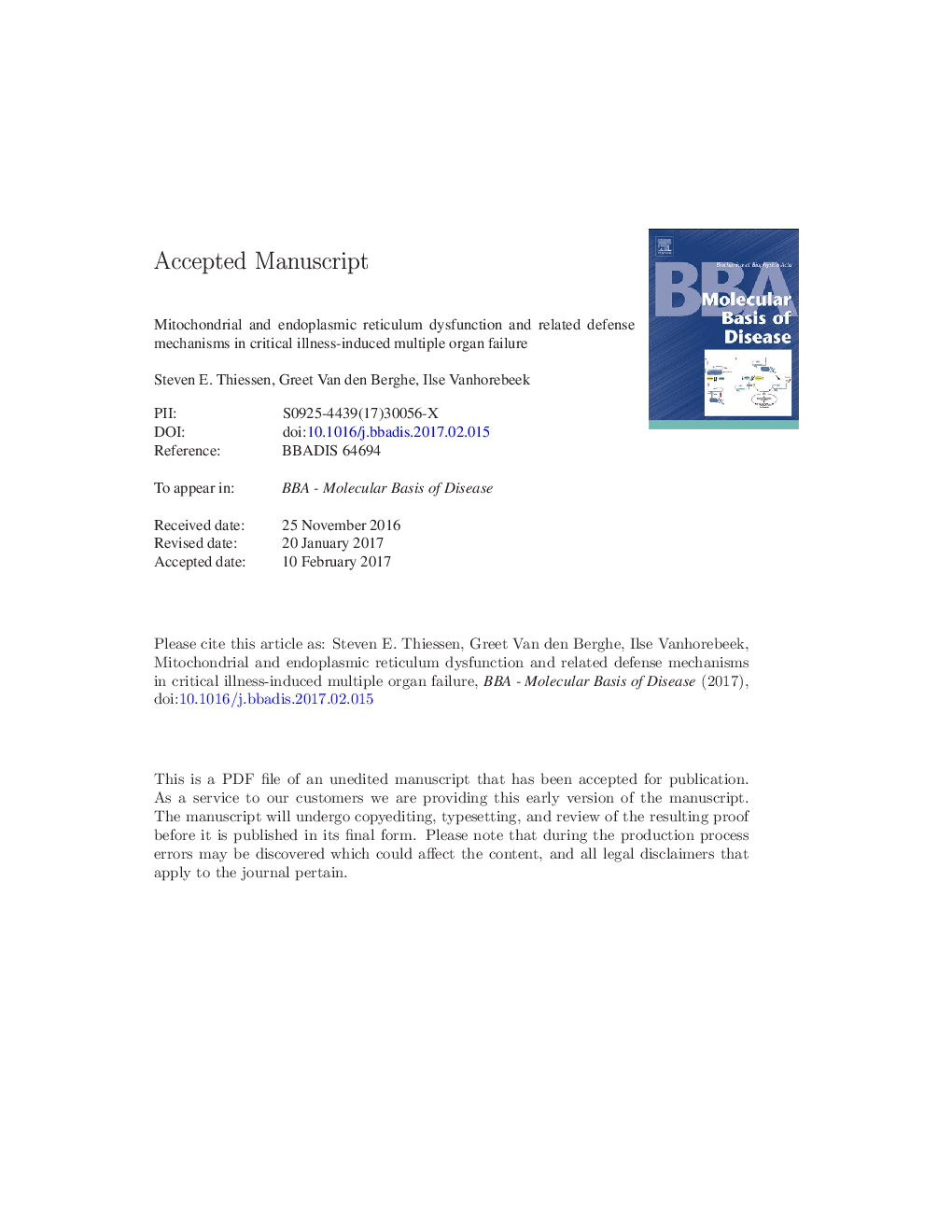| Article ID | Journal | Published Year | Pages | File Type |
|---|---|---|---|---|
| 8258920 | Biochimica et Biophysica Acta (BBA) - Molecular Basis of Disease | 2017 | 38 Pages |
Abstract
Patients with critical illness-induced multiple organ failure suffer from a very high morbidity and mortality, despite major progress in intensive care. The pathogenesis of this condition is complex and incompletely understood. Inadequate tissue perfusion and an overwhelming inflammatory response with pronounced cellular damage have been suggested to play an important role, but interventions targeting these disturbances largely failed to improve patient outcome. Hence, new therapeutic perspectives are urgently needed. Cellular dysfunction, hallmarked by mitochondrial dysfunction and endoplasmic reticulum stress, is increasingly recognized as an important contributor to the development of organ failure in critical illness. Several cellular defense mechanisms are normally activated when the cell is in distress, but may fail or respond insufficiently to critical illness. This insight may open new therapeutic options by stimulating these cellular defense mechanisms. This review summarizes the current understanding of the role of mitochondrial dysfunction and endoplasmic reticulum stress in critical illness-induced multiple organ failure and gives an overview of the corresponding cellular defense mechanisms. Therapeutic perspectives based on these cellular defense mechanisms are discussed. This article is part of a Special Issue entitled: Immune and Metabolic Alterations in Trauma and Sepsis edited by Dr. Raghavan Raju.
Keywords
Related Topics
Life Sciences
Biochemistry, Genetics and Molecular Biology
Ageing
Authors
Steven E. Thiessen, Greet Van den Berghe, Ilse Vanhorebeek,
